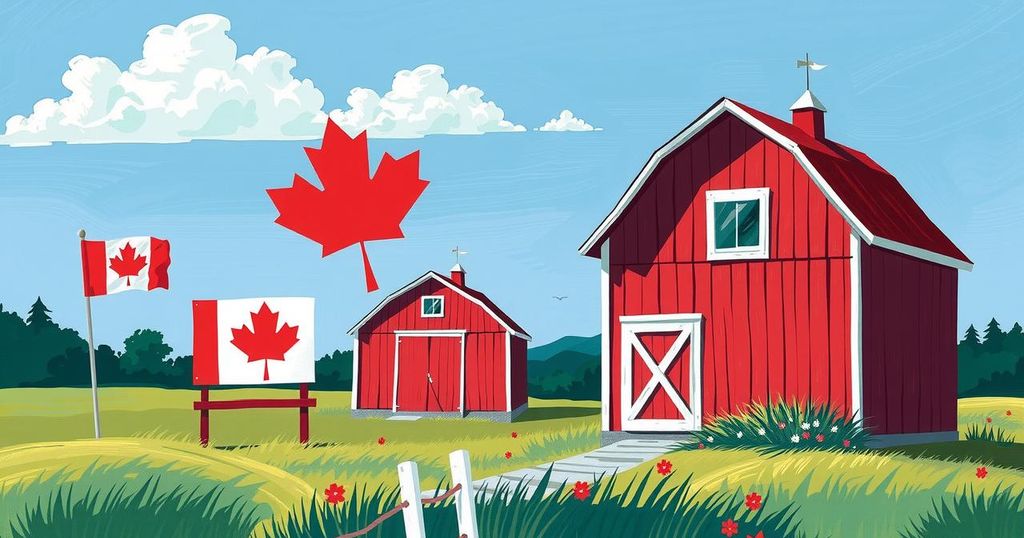Carney Calls Snap Election, Citing Threats from Trump

Canadian PM Mark Carney has called a snap election for April 28, asserting that strong leadership is needed to counter the threats from U.S. President Trump. Amid ongoing trade tensions, Carney aims to leverage a positive shift in Liberal Party polling and has proposed tax cuts. The Liberal Party currently shows a slight lead over the Conservatives as they prepare for a competitive race.
On Sunday, newly appointed Canadian Prime Minister Mark Carney announced a snap election scheduled for April 28. He articulated that a robust mandate is essential to confront the threats posed by U.S. President Donald Trump, who he accused of desiring to undermine Canada. Carney’s remarks highlighted the strained relations between the two countries, particularly after Trump imposed tariffs on Canadian goods and suggested annexation of Canada.
While the next scheduled election was not until October 20, Carney aims to leverage the recent positive shift in polling for his Liberal Party since January, coinciding with Trump’s aggressive stance towards Canada and former Prime Minister Justin Trudeau’s resignation. Upon taking office on March 14, Carney had expressed a willingness to work with Trump; however, he adopted a more confrontational tone during this announcement.
Carney emphasized the gravity of the situation, stating, “We are facing the most significant crisis of our lifetimes because of President Trump’s unjustified trade actions and his threats to our sovereignty.” He urged a response to fortify the Canadian economy and sovereignty, rejecting Trump’s claims that Canada lacks legitimacy.
In reaction to the escalating trade tensions, Trump imposed tariffs on steel and aluminum from Canada while suspending a broader 25% tariff on other goods temporarily. As concerns among Canadians escalate regarding the implications of Trump’s policies, polls indicate that citizens are primarily focused on the repercussions of potential tariffs.
Carney, with minimal political experience, succeeded in obtaining Liberal leadership by convincing party members he is the right choice to challenge Trump. In his campaign, he proposed cutting the lowest income tax rate and has a short window to connect with voters. Recent polling suggests a favorable shift for the Liberals, now slightly leading the Conservatives, reversing their earlier deficit.
Conservative leader Pierre Poilievre, who is notably adept in French and has extensive political experience, aims to portray Carney as an elitist. He asserts his agenda will prioritize Canadian interests, promoting tax cuts and resource production to bolster investment and independence from U.S. pressures.
While Carney’s relative inexperience may raise concerns, experts indicate that the pressing issues surrounding Trump may overshadow typical electoral critiques. Recent polling data indicates that the Liberals currently enjoy 42% support, compared to the Conservatives’ 37%, suggesting a highly competitive election is forthcoming.
In summation, Prime Minister Mark Carney’s call for a snap election underscores the urgency he perceives in addressing U.S. President Trump’s aggressive trade policies and threats to Canadian sovereignty. With a remarkable recovery in Liberal Party polling and specific proposals to bolster the economy, Carney aims to secure support before the upcoming election. Concurrently, the Conservative Party positions itself to capitalize on Carney’s inexperience, advocating for policies focused on Canadian self-reliance.
Original Source: www.cnbc.com








